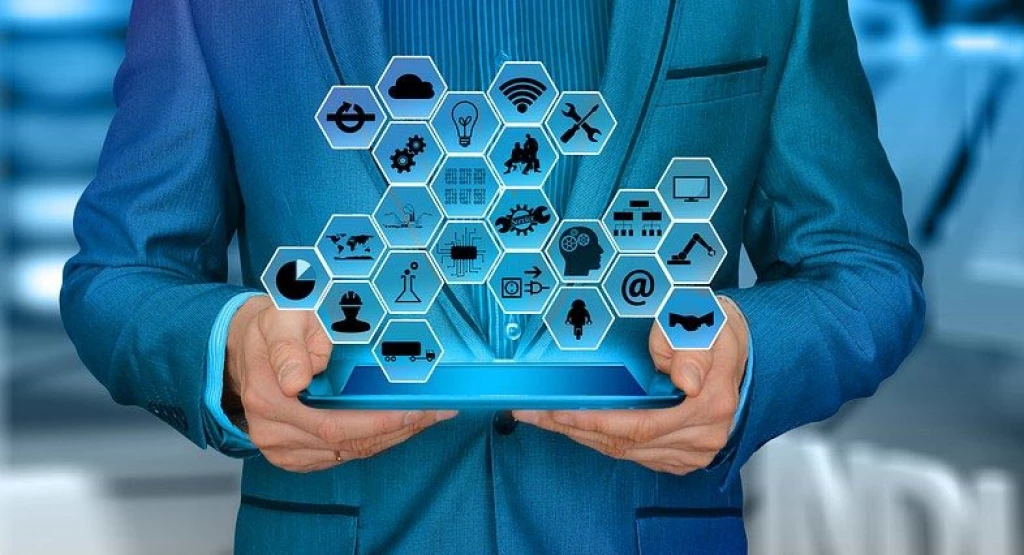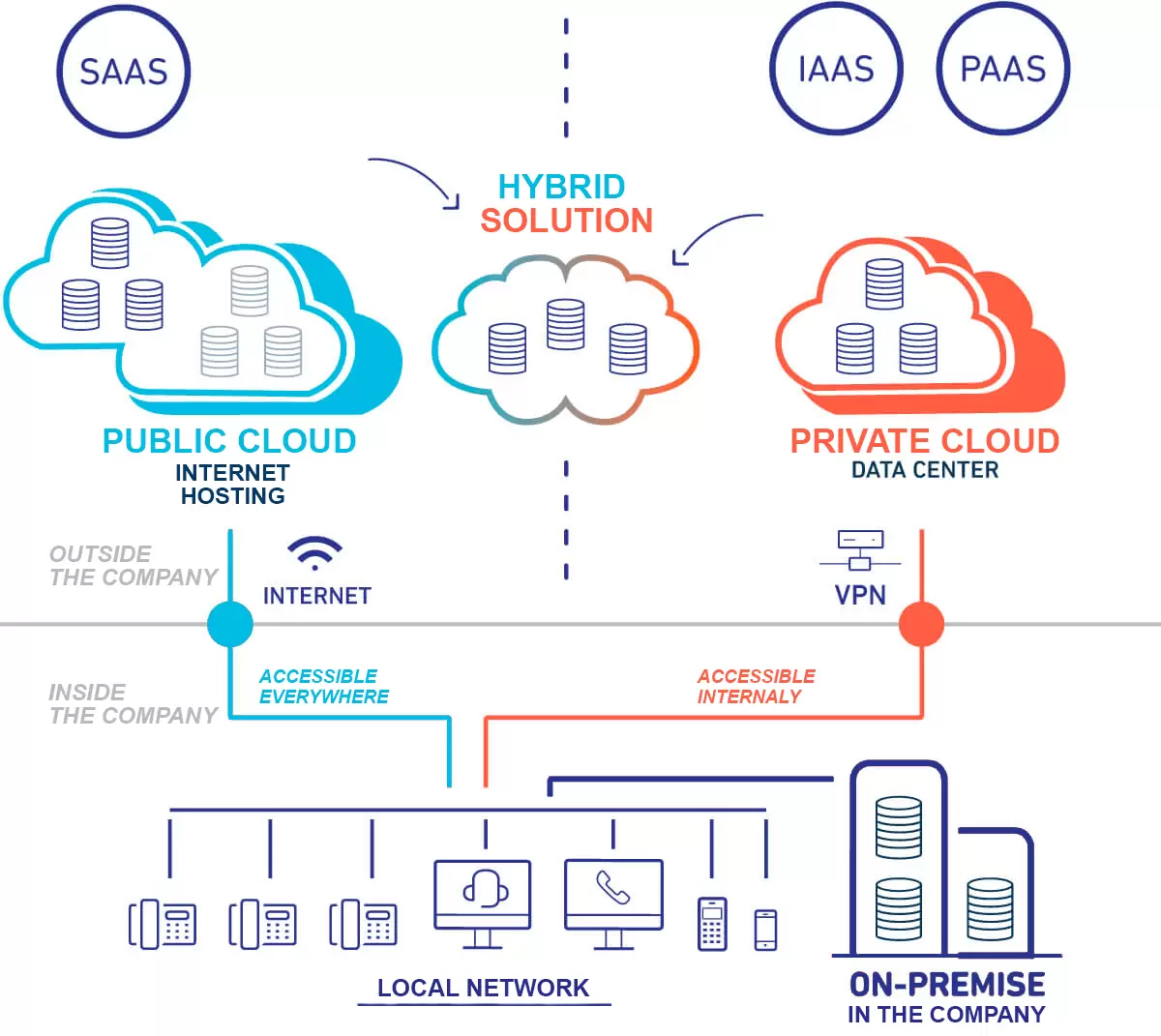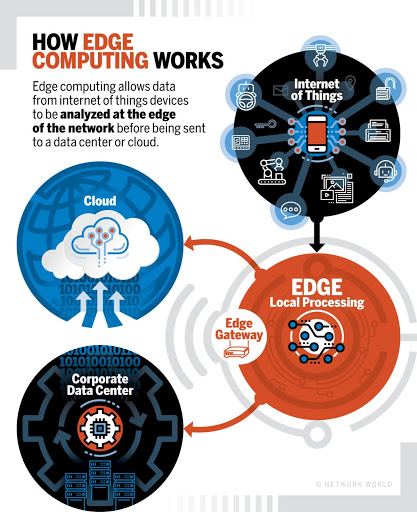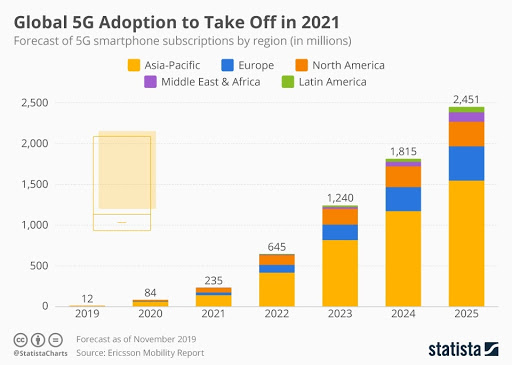Top 12 Tech Trends for 2023 That Will Help Your Company Grow
Staying on top of tech trends is vital in our digital age. Businesses that are ready to capitalize on this are most likely to establish themselves as market leaders.

Companies grow at approximately the same rate as tech trends develop. The business provides funding for research aimed to improve the production process, while revolutionary new technologies shape the way companies evolve and generate wealth.
A tech trend is a snapshot of these converging lines of development at a given point in time. Understanding tech trends allows you to locate your company within this broader frame and capitalize on opportunities that tech provides.
To learn more about the current state of tech and its relation to the business world, we dive into the 12 top tech trends for 2023.
1. Hybrid Clouds
The cloud is steadily becoming the default way to deploy business software. The advantages of running your tech stack on the cloud have been well documented over the years (including the cost of deployment, easier maintenance and support, enhanced cybersecurity, etc.), but some companies have found that sticking with a single type of cloud has its downsides as well.
In lieu of this, businesses began experimenting with solutions that involve multiple clouds. Hybrid-based approaches combine private, in-house cloud infrastructure with public clouds from third-party providers. This has allowed companies to distribute workloads more effectively, keeping mission-critical data on the local cloud, and offloading non-essential operations to public clouds such as AWS or Microsoft Azure.
2. Further Developments in AI
AI is getting smarter, faster, and more creative with each successive version. While we are still far off from genuine machine intelligence the likes we find in sci-fi, present-day AI challenges our understanding of what a software system can accomplish on its own. One of the latest breakthroughs is OpenAI’s GPT-3 deep learning model which can generate text that is virtually indistinguishable from human writing.
On the business side of things, AI enables companies to implement systems that can optimize a number of internal and customer-facing operations. Benefits include streamlined customer journeys, optimized employee management processes, automatic data synchronization across applications, etc. These options are frequently available in the form of AI-as-a-service subscriptions.
3. Edge Computing
The proliferation of IoT devices, combined with portable computing power and AI-powered networking tools, is finally turning edge computing into a viable vector of business growth. According to a recent Gartner report, in 2019 businesses generated only about 10 percent of their through edge computing. But in the next 6 years, this percentage is forecast to reach a staggering 75%. Most of these gains will be in industries such as finance, manufacturing, retail, and logistics.
The main benefit of edge computing for business is a shorter production cycle for actionable data. Instead of gathering inputs, piping them to a data center for processing, and then back to HQ for actual use, edge computing produces data that is ready to be used on location.
4. Everything as a Service (XaaS)
When it comes to business expansion strategies, many companies are exploring what we can call the everything-as-a-service or XaaS, a catch-all-term for the combination of software-as-a-service (SaaS), platform-as-a-service (PaaS), and infrastructure-as-a-service (IaaS). XaaS is the next logical step in the process of exporting business operations outside the confines of the office, and onto the web.
XaaS greatly simplifies the activity of running a business. Instead of having to build essential business systems from scratch, companies can simply subscribe to a number of essential services and get everything up and running in no time. This allows them to focus on developing innovative products and services customers want.
5. 5G Networks
The adoption of the 5G network standard is one of the most far-reaching tech trends that businesses will have to contend. 5G networks are already being built in places like China and South Korea, and the rest of the world is following suit with the lone exception of the US, which insists on placing restrictions on companies such as Huawei, one of the key 5G developers globally. 5G is intended to work together with existing 3G and 4G networks to provide high-bandwidth internet access.
5G networks are the key element of IoT and Edge Computing, as they enable IoT devices to process and share vast quantities of data in real-time, reducing reliance on server farms for computation.
6. The Rise of Remote Work
The COVID-19 pandemic has accelerated the ongoing tendency towards remote working. This kind of progression was years in the making thanks to the prevalence of digital over physical work in major industry sectors. Businesses that gave their employees the option to work from home have experienced benefits ranging from reduced office overhead, improved productivity, and higher team morale.
Facilitating remote work are various kinds of collaborative applications. Besides business staples such as Asana or Basecamp, we are seeing more and more industry-specific apps such as ChilliConnect for collaborative game development management, and some companies are opting to develop in-house solutions custom-tailored to their needs.
Discover How SpotlerCRM Can Help
7. Low-Cost, Feature-Rich CRM Apps
Thanks to their ubiquity in today’s business software market, CRM apps are becoming synonymous with business software as such. CRM tools allow businesses to keep track of their sales, marketing, and customer service efforts through features such as intelligent customer segmentation, workflow automation, marketing campaign planning, and others.
What sets apart the new generation of CRM apps from their predecessors is three things: ease of deployment, low cost, and an abundance of features. Most modern CRM systems are deployed as SaaS, the basic subscription tier is often completely free, and some CRM providers include advanced features such as AI analytics as a bonus.
8. Intelligent Digital Assistants
One of the most ubiquitous products of the intersection between AI, automation, and big data is the intelligent digital assistant. Thanks to Amazon and Microsoft, Alexa and Cortana are already household names, and their capabilities are improving with each passing year. Digital assistants also have a range of applications in a business context, particularly in customer-facing roles. They are mainly being used to provide customer support, give out product recommendations, and keep customers notified about time-sensitive updates. With the proliferation of chatbot creation services and platforms online, businesses can create custom digital assistants from scratch with little difficulty, and often free of charge.
9. Voice and Face Recognition
Thanks to developments in machine learning and neural networks, voice and face recognition technologies are improving across the board. Advanced face recognition algorithms are capable of distinguishing human faces from the background quickly, even within obscured, low-resolution images. Face recognition is being used to improve the security of apps that handle sensitive user information, creating better customer experiences. Voice recognition plays a similar role, albeit with a focus on the convenience provided by voice-based interfaces for interacting with apps.
10. Immersive AR Experiences
Augmented reality or AR is an extension of the concept of virtual reality (VR) into everyday life. Originally a concept reserved for gaming and entertainment, AR has recently entered the business mainstream, finding use in industries such as marketing, education, and even the military. Companies using AR hope to increase customer engagement and satisfaction through the use of immersive experiences that target multiple senses. From navigation apps to virtual shops and interactive marketing events, AR is poised to change business as we know it. According to some predictions, AR is poised to become a multi-billion dollar industry in the future, and early adopters hope to capitalize on the opportunity by rolling out AR content as early as this year.
11. Crypto Currencies Powered By Blockchain
Crypto-currencies represent a revolutionary new way to conduct business transactions. Mainstays such as BitCoin and LiteCoin are just the tip of the iceberg when it comes to crypto, with many enterprises developing and launching their own. And when crypto-currencies are used in conjunction with blockchain technology, they offer an integrated, decentralized system for doing secure finance and investment. Crypto-currencies are widely used by start-ups, but big players such as Facebook have also realized their potential. Facebook’s crypto-currency called Libra is set to launch later this year, attracting attention from investors, governments, and other enterprises alike.
12. Cyber Security
From phishing scams to cyber attacks by hostile nations, the development of modern technology has cybercrime as its dark side. Cybercrime is a major risk for businesses of all sizes, as well as their unsuspecting customers. In response, cybersecurity firms are scrambling to develop technology for combating the rising threat of sophisticated cyber-attack. One of the venues of research is the usage of AI for cybersecurity, and for good reason. Only AI has the capabilities to respond, adapt, and minimize the risk of cyber attacks as they happen in real-time. The three key tenets of AI cybersecurity are training machine learning models on existing cyber attack data, automating responses to cybersecurity attacks, and predicting future attacks based on past ones.
Technology Marches On
Staying on top of tech trends is vital in our digital age. New technologies can reshape existing industries in surprising ways, causing massive waves of change on the market. Businesses that are ready to capitalize on these movements are the ones most likely to overtake their competitors and establish themselves as market leaders. And the only way to do so is to keep a close eye on existing tech trends, as well as ones that are likely to emerge in the future.
Really Simple Systems is now Spotler CRM
The same great technology, a CRM platform that is focused on the needs of B2B marketers, provided by the same great team, at a great price!



